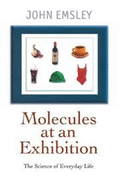There is nothing wrong with making mistakes. Just don’t respond with encores. – Unknown
It would appear that we are starting to reach the end of our financial ropes in The West. Greece has been in trouble for a quite a while along with several other European countries, while the rest of them are desperately trying to put out the financial fires. The USA has just gone through a massive debate about their 'debt ceiling' and the American government's credit rating has been cut for the first time in modern history. It seems that we have us a full blown debt crisis.
This Site's Calculation of the US debt situation does not paint a pretty picture. If you add together all the debt held by all levels of government and then combine that with personal and corporate debt you end up with close to 55 trillion dollars in debt. That's quite a bit of debt. At least I think so. Now, I'm not going to talk about what I think the solution is to this problem other than to say the obvious 'you need to spend less than you make,' and I'm not going to say that there should be no debt (I have a mortgage myself). Instead, I want to talk about the cultural implications of this.
This kind of debt load shows us something about the culture we live in. It show us that we live in a culture of immediacy. After all what is debt besides getting something now that you (or maybe your grandkids) pay for later? I want a new couch? NO PAYMENTS FOR 18 MONTHS!! well I better get one. I want a new car? 0% down!! Well I better get one. We want a new road? Hey look, this banker has money!! We better build one. Patience and contentment seem to be a long forgotten virtues.
It can be hard to be content with what we have. Others have so much more. We keep getting bombarded with messages about all the things we 'need.' The bigger house, the nicer car, a newest electronic device, these things keep tempting us to buy, buy, buy. It makes one wonder if there is a way to find contentment and patience in this discontent and hectic world that we live in? Well, the Apostle Paul claimed to have found it. He said that he had learned in whatever situation he was to be content. I wonder what his secret was?
'I have learned the secret of facing plenty and hunger, abundance and need.
I can do all things through him who strengthens me.' (Phil 4) So
that's the secret. A friend who strengthens us. A friend who keeps us. a friend who fulfills us. I wonder what friend that might be? Well let's keep reading and see what he says.
'
And my God will supply every need of yours according to his riches in glory in Christ Jesus.'
So that's where our needs are met! That's where we find fulfillment and contentment and patience. In God working through his Son, Jesus Christ.
I suppose that in the end I have proposed a solution to the debt crisis. Find your satisfaction in Christ and not in the things that you have, and certainly not in the material things that you want! Look to him and he will provide for your needs in a way that will make those wants and desires fall into their right place. Why overextend yourself to get what will not make you happy when you can get that which will make you happy as a free gift of God?


